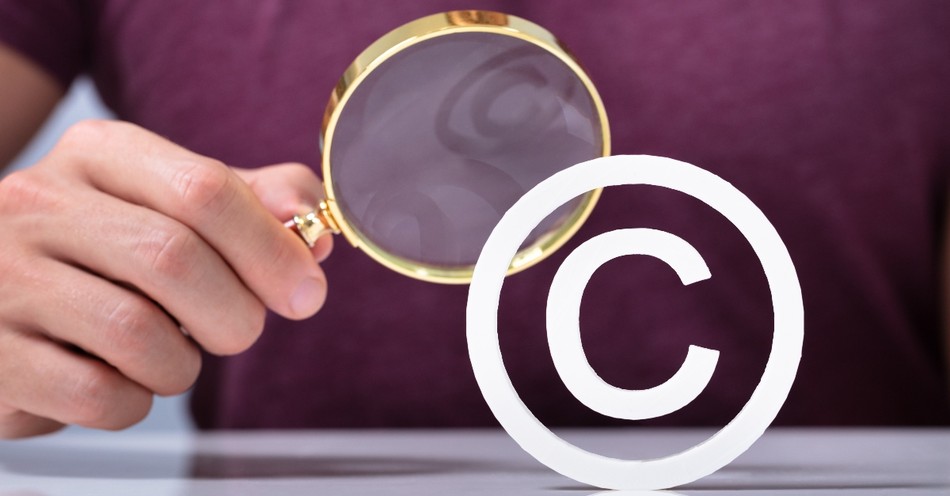When you flip open a copy of the Bible, you may notice that the beginning section contains a copyright page. Although not all of us have a publishing or writing background, most of us know that most modern books have a copyright page in them.
A copyright protects a work from getting copied, in the simplest of definitions. In other words, if a work has not entered the public domain (meaning, after a certain period of time, the public can use a work however they please) then there are certain restrictions placed on how much people can quote from a work, they have to give proper attributions to the work or translation, and it protects the work from getting plagiarized.
If a work has entered the public domain, for instance, the works of Shakespeare, one could do whatever they want with those plays (with exceptions). They could make parodies, such as the films She’s the Man, based on Shakespeare’s Twelfth Night, Clueless, based on Jane Austen’s Emma, and more.
But most fair use laws won’t give more than a century to a work before it enters the public domain. With, of course, exceptions.
So, what about the Bible, written centuries before? Why do modern translations of the Bible have a copyright if Scripture was written way beyond fair use and copyright laws?
In this article, we’ll dive into why modern translations have a copyright, just how much you can copy from the Bible and use in works (such as books or articles), and why this matters.
Why Do Translations Have a Copyright?
We should note that not all translations of the Bible have a copyright.
For instance, the King James Version, translated in 1611, easily fits into the public domain. It existed long before copyright laws as we know them were in place, and so most KJV Bibles will not have a copyright page (unless we have a newer translation of the KJV such as the NKJV).
However, as argued in this article, the KJV still does fall under a copyright and is protected by such, so arguably, all modern translations have a copyright, even if they don’t have a copyright page present.
But any translation created in the 20th or 21st century most likely has a copyright page.
Why? Can translators even put a copyright on the inspired Word of God, created thousands of years ago?
We need to analyze the question itself and the word “translation.” Translation implies translators, which means people who put hundreds, if not thousands, of hours into figuring out how to best convey the context and meaning of Scripture into a new language. A copyright ensures they receive proper compensation for their hard work.
People may push back against this and say, “Well, doesn’t that jeopardize the quality of the work. If publishers and translators care about money and compensation?”
We must keep in mind that Scripture encourages us to work for our food and living (Psalm 128:2). Because someone wants to feed their family and provide for them, does not compromise the work altogether.
I often will run into this conundrum in the Christian publishing industry. People will ask me to do a free edit on their manuscript or give free book coaching advice because, “Well, we’re both Christians. You’re doing the Lord’s work. You shouldn’t be paid to be doing the Lord’s work.”
That simply is not biblical. We pay pastors and church staff through offering and missionaries through giving. In the same way, we should properly compensate translators for their kingdom work. And we shouldn’t cheat them by quoting huge portions of the translation without fair use or proper compensation.
Just How Much Can We Quote from the Bible?
In short, the answer depends on the Bible translation.
For instance, looking at the copyright page of my NLT translation of the Bible, you can quote up to 500 verses without receiving permission from the publisher (Tyndale) to use more as long as the verses don’t make up more than 25% of Scripture.
Why would they put such a seemingly arbitrary rule in place?
We have to keep in mind that if someone, in a book, quotes half of the Bible, they essentially steal half the work of translators without giving proper attribution.
Although Scripture is the inspired Word of God, many of these companies have families to feed and businesses to run. By implementing a copyright and rather lenient (in comparison with fair use and other works) laws, they can help preserve the thousands of hours of work and investment that went into compiling a translation.
Why Does This Matter?
Scripture commands us not to steal (Exodus 20:15). If a single article, book, or other work quotes a huge portion of the Bible without proper attribution, then that work commits the sin of stealing.
It robs the translators, proofreaders, and other translation team members of the hours of investment they poured into a work.
If we pay pastors, missionaries, and other kingdom workers for their hard work, we should do the same for those who have translated Scripture into our language.
Photo Credit: ©iStock/Getty Images Plus/AndreyPopov
Hope Bolinger is an acquisitions editor at End Game Press, book editor for hire, and the author of almost 30 books. More than 1500 of her works have been featured in various publications. Check out her books at hopebolinger.com for clean books in most genres, great for adults and kids. Check out her editing profile at Reedsy.com to find out about hiring her for your next book project.




.jpg)